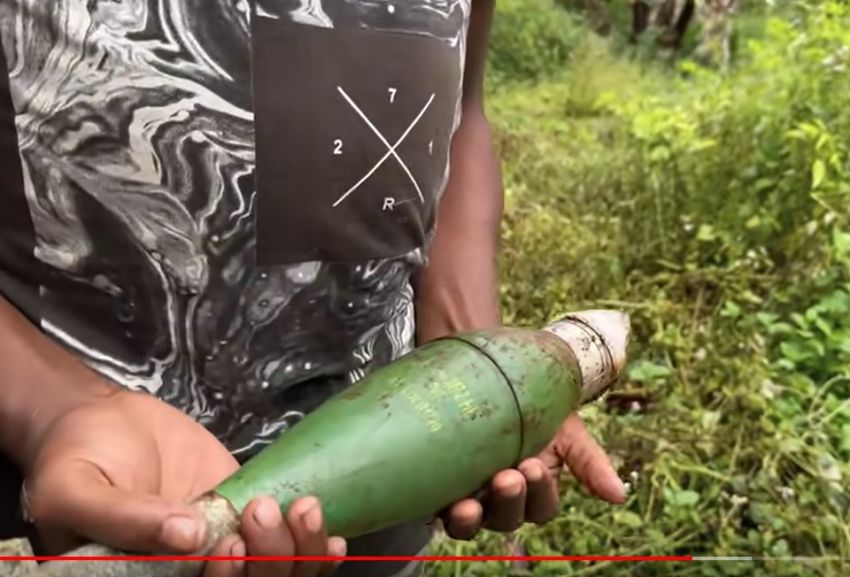
This week, Indonesians commemorate their independence from Dutch colonialism, on August 17, 1945. West Papuans also commemorate their six-decade-long struggle for independence this week on August 15. This date marks 61 years since the Papuan people were betrayed by the international community on August 15, 1962, under the terms of the New York Agreement, a deal between the Netherlands and Indonesia, brokered by the United States, over West Papua’s sovereignty.
The ensuing decades have been bookmarked by a bloody struggle for independence, with Indonesian police and military deploying mass violence and killings to quell dissent.
In the latest chapter of this struggle, 27 West Papuan National Committee (KNPB) activists, handing out leaflets for an independence rally in West Papua, were arrested by Indonesian occupying forces, on August 12. These arrests are typical of the suppression and intimidation of civil society groups working for recognition of West Papua.
Three days later, West Papuan activists took to the streets on August 15, calling on the United Nations to review the New York Agreement. Indonesian security forces responded to the peaceful rallies with violence, attacking demonstrators and using water cannon. Many protesters received head injuries from the attacks.
Joe Collins from the Australian West Papua Association told Green Left: “West Papuan civil society groups regularly hold events and rallies on days of significance in their history to try and bring attention to the world of the injustices they suffer under Indonesian rule. And this is what Jakarta fears most, international scrutiny on the ongoing human rights abuses in the territory.”
International scrutiny was given a boost this month with the release of the 45-minute documentary Paradise Bombed, which details Indonesia’s military occupation of West Papua and its 2021 bombing of Kiwirok and surrounding remote mountain villages.
The documentary, released by the internet incubated and oft outspoken "FriendlyJordies" (aka Jordan Shanks), has had more than 900,000 views at time of writing. It was released with a report by Matthew Jamieson of the PNG Trust investigating the Kiwirok bombings.
FriendlyJordie’s producer Kristo Langker travelled to West Papua to make the documentary (a feat in itself). In it he alleges that six Papuan villagers were killed in the initial attack, seven more while fleeing for safety, and a further 284 villagers died as a result of starvation in the following months.
Langker released an additional short documentary, HostageLand, filmed in West Papua with Sebi Samba, the spokesperson for the Free Papua Movement (OPM). It details the history of hostage taking in the region and the very limited resources the independence movement has access to.
Paradise Bombed’s release makes FriendlyJordies one of only a few in Australia’s non-traditional media landscape working to shed light on Indonesia’s brutal occupation. The Juice Media is another, with its Honest Government Ad — Visit West Papua, released in 2018, receiving nearly 3.5 million views.
United Liberation Movement for West Papua (ULMWP) president Benny Wenda praised the researchers and documentary makers, saying: “We are murdered, tortured, and raped, and then our land is stolen for resource extraction and corporate profit when we flee … My heart was crying as I watched this documentary, as I was reminded of the Indonesian attack on my village in 1977 … The international community knows this is a grave humanitarian crisis, and yet still refuses to act. Why?”
Wenda called on diplomatic groups, parliamentarians, legal supporters and solidarity activists to “ask your governments to address this, to stop selling arms to Indonesia”.
Paradise Bombed reveals that bombs and rockets were fired from helicopters and drones during the attack on Kiwirok. Langker is clearly terrified at his West Papuan hosts’ handling (and his own) of unexploded rockets recovered after the attacks.
An estimated 2000 people were forced to flee the bombings into the mountainous forests, where they have remained in makeshift bush camps ever since. Villagers are rightly worried about returning home; the documentary reveals that those who try to have been shot and killed. Wenda alleges these villagers were “shot at close range, with sniper rifles, and tortured”, adding that “[t]he names of Kiwirok residents are now added to the 60,000‒100,000 who have been forcibly displaced by Indonesian militarisation since 2018”.
The accompanying Report on the continuing aggravated attack and serious human rights violations of Ngalum Kupel people, prepared by the PNG Trust, details evidence from eye witnesses, who described “a drone dropping bombs together with four or five helicopters firing rockets at houses, food gardens, pigs and chickens”.
The report tells how survivors collected shrapnel and bombs from the initial series of attacks, keeping them as evidence. They indicate that “Thales FZ 68 rockets and modified Krusik mortars were used as the munitions in the military aerial attacks”.
Furthermore, it says “witness accounts detail the Indonesian military forces using a drone/UAV armed with modified Krusik mortars, Thales rocket FZ 68 weapon systems and military attack helicopters against an Indigenous community”.
Thales has been under scrutiny for its supply of weapons to Indonesia's military.
In Paradise Bombed, Langker interviews Stephen Loosley, Deputy Chair of the Board of Thales Australia. Loosely previously served as a federal Labor senator during the Hawke and Keating governments and chaired the Joint Committee on Foreign Affairs, Defence and Trade. He is also a Senior Fellow and past Chair of the Australian Strategic Policy Institute. Langker presents Loosely with identified Thales shrapnel from the bombed villages and pictures of the destruction. Typically, Loosley shirks responsibility.
Nine hundred thousand views represents significant attention to the atrocities perpetrated by Indonesia in its brutal occupation of West Papua. The question becomes how best to translate this into meaningful action.